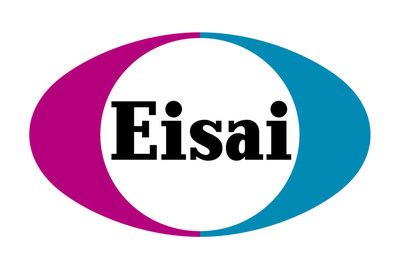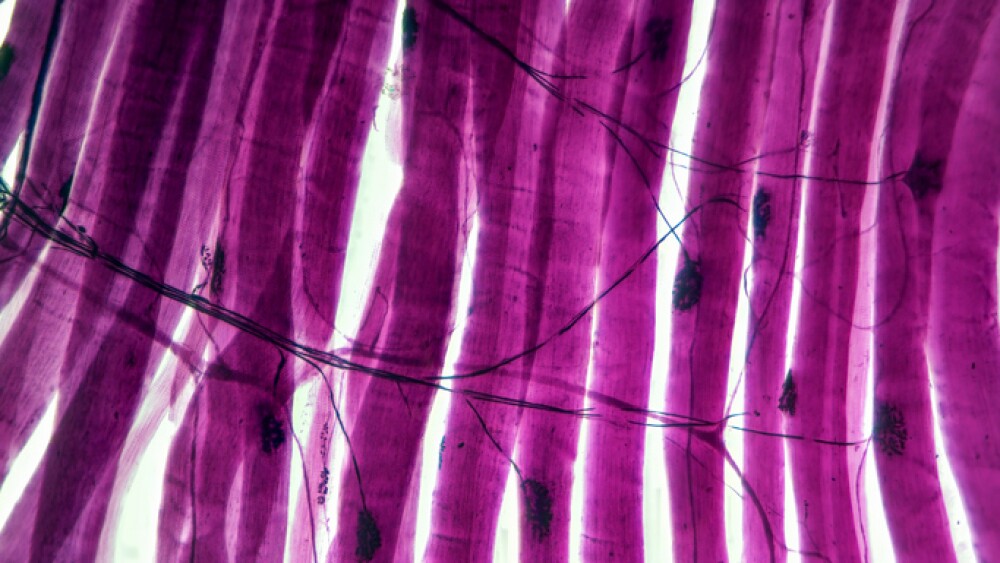Eisai announced today that new study results on its in-house discovered and developed anticancer agent eribulin mesylate (HALAVEN ® , “eribulin”) will be presented during the 2022 San Antonio Breast Cancer Symposium (SABCS), which is taking place virtually and in-person in San Antonio, Texas from December 6-10.
|
NUTLEY, N.J., Dec. 1, 2022 /PRNewswire/ -- Eisai Inc. announced today that new study results on its in-house discovered and developed anticancer agent eribulin mesylate (HALAVEN®, "eribulin") will be presented during the 2022 San Antonio Breast Cancer Symposium (SABCS), which is taking place virtually and in-person in San Antonio, Texas from December 6-10. Eisai will present five eribulin-related abstracts, including a post hoc subgroup analysis from two pivotal Phase 3 studies (EMBRACE and Study 301), as well as:
"We continue to relentlessly pursue research that provides useful insights for people living with breast cancer," said Dr. Takashi Owa, Chief Scientific Officer, Senior Vice President, Eisai Co., Ltd. "A big part of this commitment is the ongoing sharing of our preclinical and clinical data with eribulin." This release discusses investigational compounds and investigational uses for FDA-approved products. It is not intended to convey conclusions about efficacy and safety. There is no guarantee that any investigational compounds or investigational uses of FDA-approved products will successfully complete clinical development or gain FDA approval. Eisai presentations at the 2022 SABCS are as follows:
About Metastatic Breast Cancer
Metastatic breast cancer is an advanced stage of the disease that occurs when cancer spreads beyond the breast to other parts of the body.1 It is estimated there were more than 2,261,000 new cases of breast cancer and more than 684,000 deaths from the disease globally in 2020.2 In the United States, an estimated 290,560 women and men will be diagnosed with breast cancer and an estimated 43,780 will die from the disease this year.3,4 It is estimated that approximately 6 percent of women with breast cancer will have metastatic disease at the time of diagnosis.3 Women diagnosed with metastatic disease have an estimated 5-year relative survival rate of about 28% and the 5-year survival rate for men is 19%.3,5 About HALAVEN® (eribulin mesylate) Injection
HALAVEN (eribulin mesylate) injection is indicated for the treatment of patients with metastatic breast cancer (mBC) who have previously received at least 2 chemotherapeutic regimens for the treatment of metastatic disease. Prior therapy should have included an anthracycline and a taxane in either the adjuvant or metastatic setting. Discovered and developed by Eisai, eribulin is a synthetic analog of halichondrin B, a natural product that was isolated from the marine sponge Halichondria okadai. First in the halichondrin class, eribulin is a microtubule dynamics inhibitor. Eribulin is believed to work primarily via a tubulin-based mechanism that causes prolonged and irreversible mitotic blockage, ultimately leading to apoptotic cell death. Additionally, in preclinical studies of human breast cancer, eribulin demonstrated complex effects on the tumor biology of surviving cancer cells, including increases in vascular perfusion resulting in reduced tumor hypoxia, and changes in the expression of genes in tumor specimens associated with a change in phenotype, promoting the epithelial phenotype, opposing the mesenchymal phenotype. Eribulin has also been shown to decrease the migration and invasiveness of human breast cancer cells. Important Safety Information
Warnings and Precautions
Neutropenia: Severe neutropenia (ANC <500/mm3) lasting >1 week occurred in 12% of patients with mBC. Febrile neutropenia occurred in 5% of patients with mBC and 2 patients (0.4%) died from complications. Patients with mBC with elevated liver enzymes >3 × ULN and bilirubin >1.5 × ULN experienced a higher incidence of Grade 4 neutropenia and febrile neutropenia than patients with normal levels. Monitor complete blood cell counts prior to each dose, and increase the frequency of monitoring in patients who develop Grade 3 or 4 cytopenias. Delay administration and reduce subsequent doses in patients who experience febrile neutropenia or Grade 4 neutropenia lasting >7 days. Peripheral Neuropathy: Grade 3 peripheral neuropathy occurred in 8% of patients with mBC (Grade 4=0.4%) and 22% developed a new or worsening neuropathy that had not recovered within a median follow-up duration of 269 days (range 25-662 days). Neuropathy lasting >1 year occurred in 5% of patients with mBC. Patients should be monitored for signs of peripheral motor and sensory neuropathy. Withhold HALAVEN in patients who experience Grade 3 or 4 peripheral neuropathy until resolution to Grade 2 or less. Embryo-Fetal Toxicity: HALAVEN can cause fetal harm when administered to a pregnant woman. Advise females of reproductive potential to use effective contraception during treatment with HALAVEN and for at least 2 weeks following the final dose. Advise males with female partners of reproductive potential to use effective contraception during treatment with HALAVEN and for 3.5 months following the final dose. QT Prolongation: Monitor for prolonged QT intervals in patients with congestive heart failure, bradyarrhythmias, drugs known to prolong the QT interval, and electrolyte abnormalities. Correct hypokalemia or hypomagnesemia prior to initiating HALAVEN and monitor these electrolytes periodically during therapy. Avoid in patients with congenital long QT syndrome. Adverse Reactions
In patients with mBC receiving HALAVEN, the most common adverse reactions (≥25%) were neutropenia (82%), anemia (58%), asthenia/fatigue (54%), alopecia (45%), peripheral neuropathy (35%), nausea (35%), and constipation (25%). Febrile neutropenia (4%) and neutropenia (2%) were the most common serious adverse reactions. The most common adverse reaction resulting in discontinuation was peripheral neuropathy (5%). Use in Specific Populations
Lactation: Because of the potential for serious adverse reactions in breastfed infants from eribulin mesylate, advise women not to breastfeed during treatment with HALAVEN and for 2 weeks after the final dose. Hepatic and Renal Impairment: A reduction in starting dose is recommended for patients with mild or moderate hepatic impairment and/or moderate or severe renal impairment. For more information about HALAVEN, click here for the full Prescribing Information. HALAVEN® is a registered trademark used by Eisai Inc. under license from Eisai R&D Management Co., Ltd. Eisai's focus on cancer About Eisai In addition, our continued commitment to the elimination of neglected tropical diseases (NTDs), which is a target (3.3) of the United Nations Sustainable Development Goals (SDGs), is demonstrated by our work on various activities together with global partners. For more information about Eisai, please visit www.eisai.com (for global headquarters: Eisai Co., Ltd.), us.eisai.com (for U.S. headquarters: Eisai, Inc.) or www.eisai.eu (for Europe, Middle East, Africa, Russia, Australia, and New Zealand headquarters: Eisai Europe Ltd.), and connect with us on Twitter (U.S. and global) and LinkedIn (for U.S. and EMEA). 1 National Cancer Institute. Breast Cancer Treatment (Adult). Available at: https://www.cancer.gov/types/breast/patient/breast-treatment-pdq#section/all
SOURCE Eisai Inc. |





